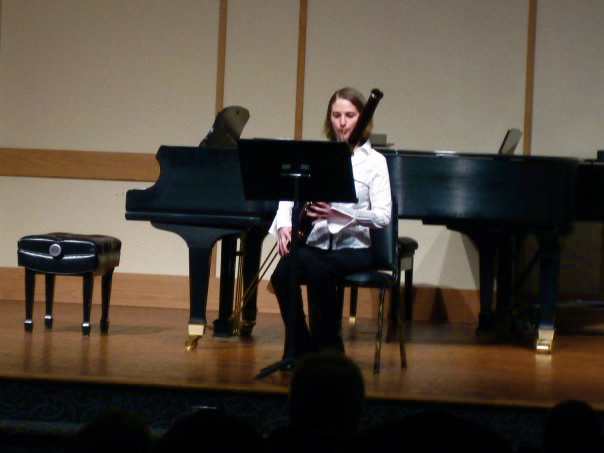Here’s something you might not know about me. I’m actually a decent singer. Not outstanding—my range isn’t great, and I’m not one of those people who can instantly harmonize—but competent. I played assorted woodwind instruments for almost ten years, so I’m good at breathing (sounds easy, but often overlooked) and since I often played complementary rather than primary parts, once I find a harmony, I can stick to it.
Like I said, competent.
But there’s a reason you might not—almost certainly do not—know this about me, and it’s this: I don’t sing around other people. Occasionally, if I have a bit of liquid alcohol—I mean, liquid courage—and surroundings where it could easily pass undetected, I might let out a few lines, but don’t hold your breath for it. (Seriously—don’t. Good, deep breaths are important if you want to get more than three words in to “All the Small Things,” which—if you didn’t know—drunk girls are unable to resist singing if it comes on.)
I am, as you might well guess, somewhat self-conscious and insecure.
 It isn’t just singing, though. This is a fault of mine that colors most of my pursuits, and it’s problematic. There are times when I handle it better—for instance, in my first year of college, I performed an unaccompanied bassoon solo at a recital. It was the fourth of Telemann’s twelve Fantasias, and I infer from the lack of nightmare flashbacks that the performance went all right.
It isn’t just singing, though. This is a fault of mine that colors most of my pursuits, and it’s problematic. There are times when I handle it better—for instance, in my first year of college, I performed an unaccompanied bassoon solo at a recital. It was the fourth of Telemann’s twelve Fantasias, and I infer from the lack of nightmare flashbacks that the performance went all right.
Still, even though I have my moments, I don’t have many of them, and those I do are typically well-rehearsed—hours of practice in private lessons or alone, then on the stage in an empty auditorium, maybe—and fact-checked. This, I realize, might not be a good way to approach the world.
I recently began submitting applications to graduate programs, and many of them request a resume or curriculum vitae. In both cases, I list this site, and given that, I think I need to find a way to get back into updating and designing it. I have a couple ideas as to how to go about this, but one question I’m torn on is attention to audience. Do I take into consideration everyone who might possibly come across my blog—an old friend who moved away when we were eight, Googling my name out of curiosity? a second cousin I’ve never met? the director of a graduate program going through my application?—or do I post without thinking of them?
In Stephen King’s book On Writing (okay, two external references) he discusses your Ideal Reader. It’s been over ten years since I read the book, so I don’t want to go into too much detail, at the risk of misrepresenting King’s concept, but here’s the essence of it. Your Ideal Reader is who you think of when you think of your audience. The common sentiment goes, if you try to please everyone, you’ll end up pleasing no one, and I think this is the function of the Ideal Reader—to provide someone, real or imaginary, to write to.
I made a previous attempt at blogging before, with even less direction than I have now, but in those early posts, I addressed my Imaginary Readers, operating on what I thought was a similar philosophy. That misses the point, though. The Ideal Reader is a single entity, one who is well-defined in the mind of the writer; Imaginary Readers are a nondescript group of unknowns, and as a result, an attempt to appeal to them is doomed to fail.
My Ideal Reader is less defined than it once was. I suspect this is part of what has frozen me up with regard to my blog—I get flustered by considering all the potential readers.
This website will be getting redesigned over the coming weeks and months, and with that, I hope to alter my approach to blogging so that it is less self-conscious and less insecure. We are in a period of transition, my Ideal Reader and I. The times, they are a-changin’.
(Okay, three references, but none of them is a peer-reviewed study. I think that counts for something.)